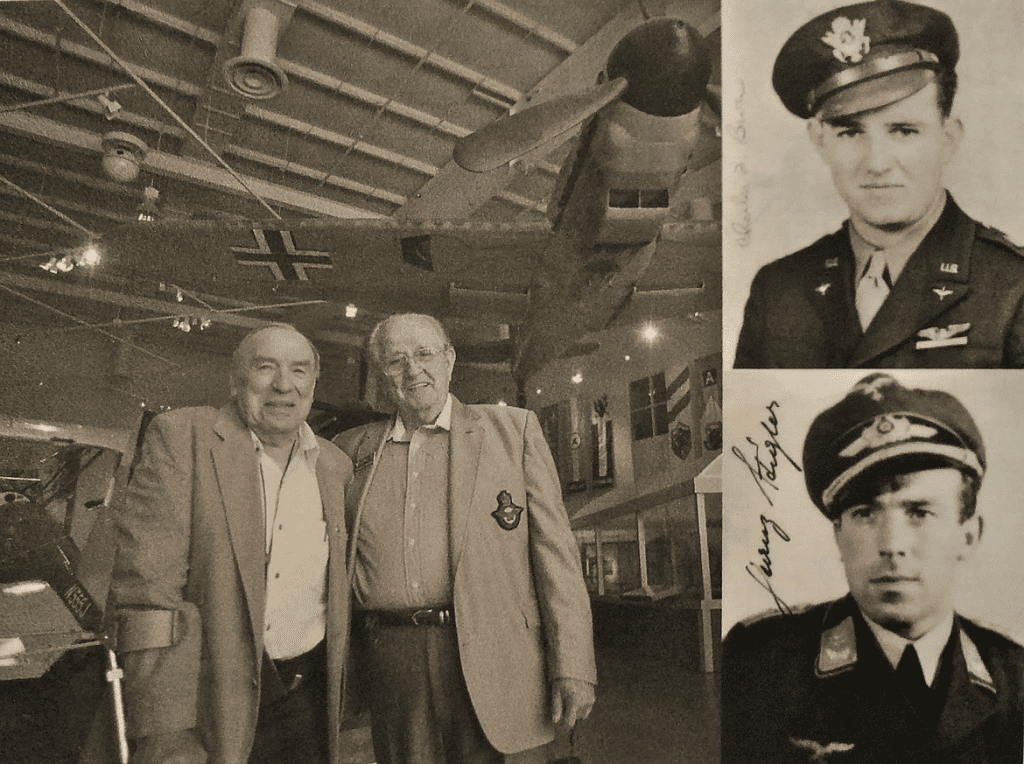In the skies over Germany during World War II, violence and chaos were the norm. Enemy planes met with gunfire, dogfights raged, and survival often came down to a single moment. But on December 20, 1944, a remarkable act of mercy cut through the brutality of war an encounter between a German fighter pilot and a badly damaged American bomber that would echo through history.
Franz Stigler, a Luftwaffe ace with over two dozen aerial victories, was scrambling for one more confirmed kill. What he found instead was a crippled B-17 Flying Fortress, its tail nearly gone, engines sputtering, and fuselage riddled with bullet holes. The American bomber, piloted by Charlie Brown, was barely flying. Many of the crew were wounded. One was already dead.
Stigler had the kill in his sights. But instead of pulling the trigger, he made an extraordinary choice. He spared the bomber and escorted it to safety risking his own life and defying the rules of war.
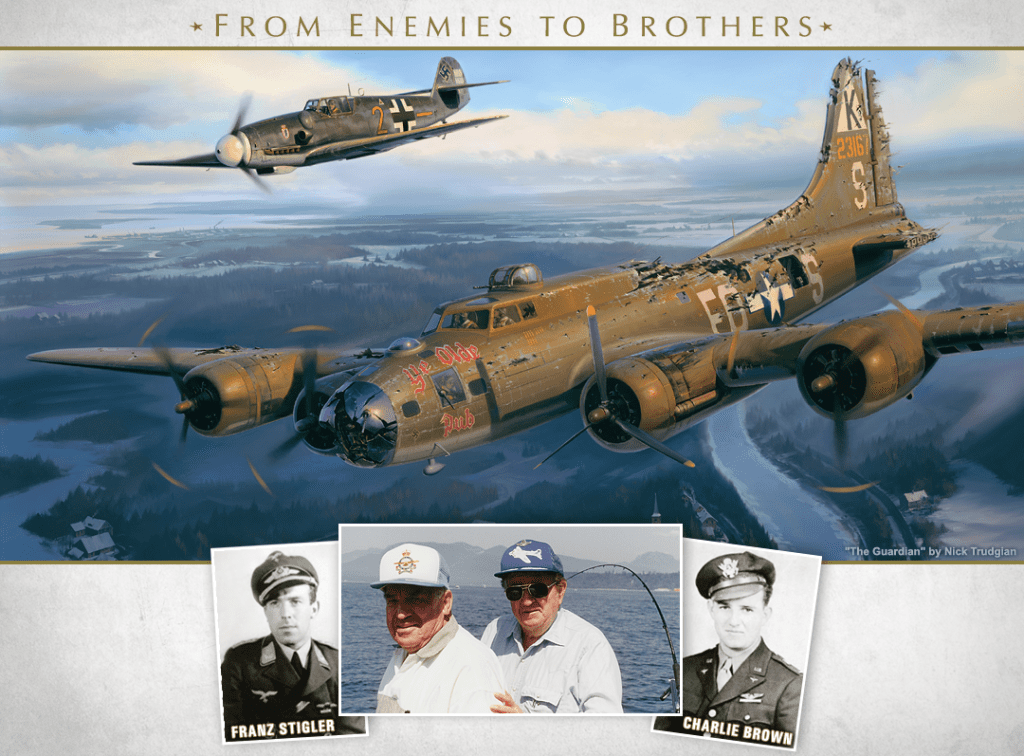
Honor Before Orders
Stigler’s decision was not an accident. It was born from a personal code of ethics rooted in chivalry and decency, even in combat. Before the war, he had been a Lufthansa pilot and a devout Catholic. Early in his Luftwaffe training, one of his commanders had told him, “If I ever hear that you shot at a man in a parachute, I’ll shoot you myself.”
Looking at the American bomber, barely holding together in the sky, Stigler recognized it for what it was not an easy target, but a flying coffin. He saw the desperation on the crew’s faces and the blood smeared across the windows.
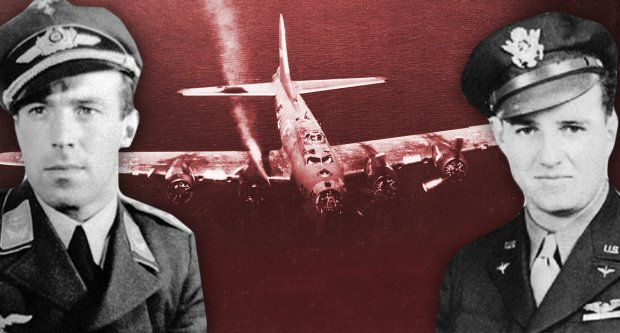
He flew alongside the B-17, signaling Charlie Brown to turn north toward neutral Sweden. But Brown didn’t understand and continued on course. Stigler then did something that could have had him court-martialed or even executed he flew in formation with the enemy, escorting them out of German airspace until they were over the North Sea and safely out of reach of German defenses.
As they parted ways, Stigler gave a final salute. Brown and his crew would survive the war, never knowing the identity of the mysterious German pilot who had let them live.
Video:
Enemy Pilots Become Friends After Strange Encounter | Tales From the Bottle
A Secret Kept for Decades
Back on the ground, Stigler kept quiet. Telling the truth would have been dangerous. Sparing the enemy was considered treason by Nazi command. Meanwhile, Brown was ordered to keep the story quiet as well, for fear it would humanize the enemy and undermine wartime morale.
For decades, both men lived with the memory, unsure if the other had survived. That changed in 1986, when Charlie Brown, now retired and living in the U.S., began a search to find the German pilot who had spared his life. He placed ads in newsletters and veterans’ publications, hoping someone might know.
It worked. Franz Stigler, then living in Canada, saw one of the ads and responded. When the two men finally met face to face in 1987, they embraced like brothers. Both broke down in tears.
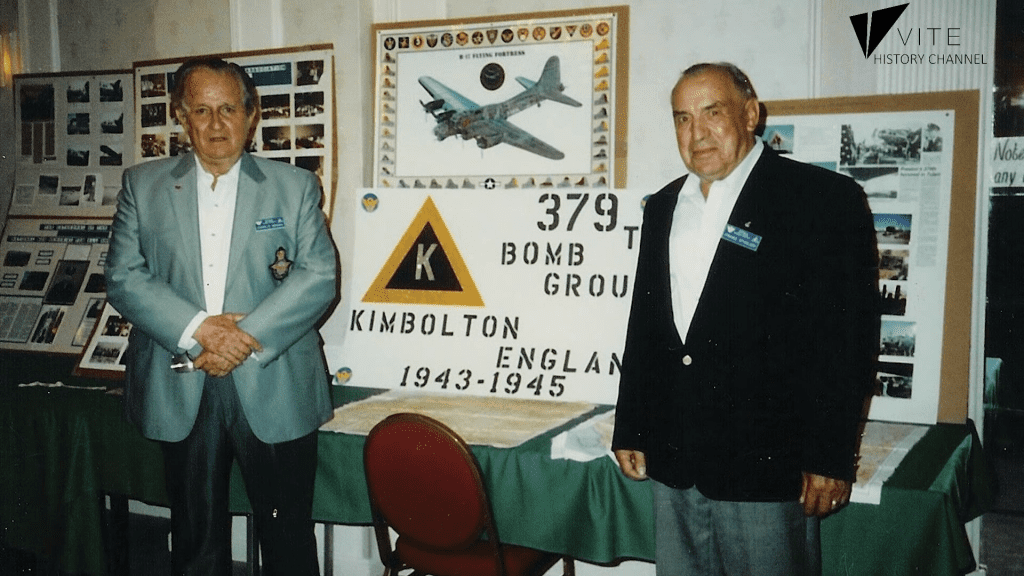
From Enemies to Friends
What began as a miraculous encounter in the skies turned into a lifelong friendship. Stigler and Brown became so close that they visited each other often, spoke at events together, and even vacationed as families. Over the years, they would tell their story to schools, veterans’ groups, and journalists not as a tale of war, but of honor, compassion, and reconciliation.
In interviews, Brown would say, “Franz was the kind of man we all hope to be.” Stigler, in turn, said sparing the B-17 “was the most important thing I did in my life.”
Video:
Franz & Charlie
A Legacy of Humanity in Wartime
Franz Stigler and Charlie Brown’s story is more than a footnote in World War II history. It is a powerful reminder that even in the most brutal circumstances, decency and compassion can prevail. Their bond crossed enemy lines, national borders, and decades of silence and it still inspires people today.
In a war that claimed millions of lives, one man’s refusal to kill saved nine and forged a friendship that lasted a lifetime. It is proof that sometimes, the most heroic action is not pulling the trigger but holding back.
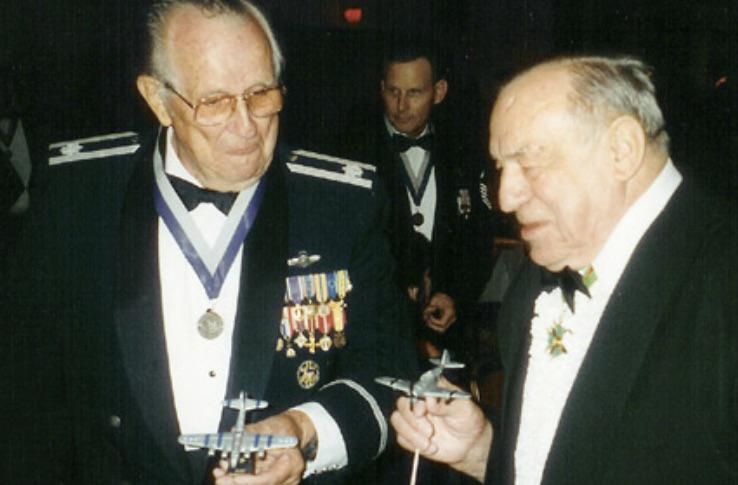
Conclusion: A Salute That Still Echoes
When Franz Stigler saluted that wounded B-17 and turned back toward Germany, he didn’t just change the course of one mission he changed the lives of everyone on board and reminded the world that honor doesn’t disappear in war. Sometimes, it soars above it.
Their story was later immortalized in the book “A Higher Call” by Adam Makos a fitting title for a moment that continues to call us to something better.
